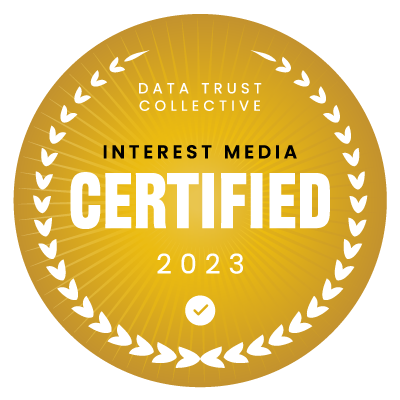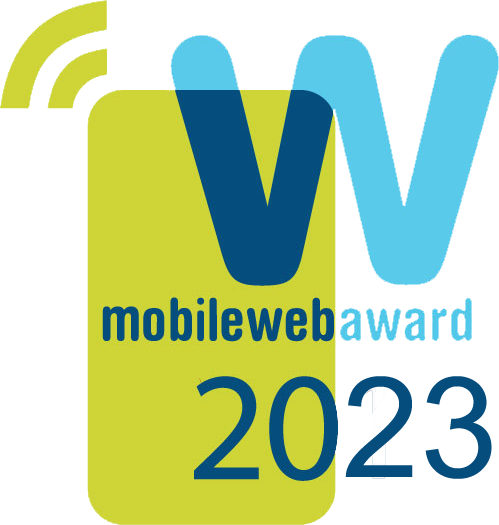
Will your Site be Harmed by Google’s Helpful Content Update?
- Google released its site-wide September 2023 helpful content update to deemphasize websites that are creating content for search engines first.
- Google’s helpful content update targets “content that seems to have been primarily created for ranking well in search engines rather than to help or inform people.”
- Discover what content will be impacted the most by the helpful content algorithm changes and what advice Google has for building human-first content.
The Searches They Are A-Changin’: Tweaking Those Algorithms
Google algorithms make up a complex system the search engine uses to retrieve data from its index to instantaneously deliver the best possible results for a query.
In addition to algorithms, Google also uses numerous ranking factors that apply relevance to its search engine results pages (SERPs).
While Google makes continual changes annually that largely go unnoticed, they have made quite a few major changes that have had a significant impact on SERPs and, thus, many websites.
Google Search Algorithms: A Short History
It was in 2011 when Google made a significant change to its core algorithm, which also represented a shift in the search engines’ focus on users and their online experience. Google’s 2011 “Panda” update specifically targeted sites with low-quality content and so-called “content farms.”
This update forced website owners and SEOs to shift the focus of their content to producing high-quality information, as Google started measuring quality over quantity, and content that answered the users’ needs.
Other major Google updates included: Penguin (2012), which targeted link spam and manipulative link-building practices; Hummingbird (2013), which was the biggest algorithm change since 2001; Florida (2004), which targeted spam links, but greatly impacted innocent small retailers and affiliates that were labeled as “false positives”; Florida 2 (2019) a major “core” update.”
Algorithms Can Impact Organic Web Traffic Hard
“Google’s February 2022 ‘Pirate’ update penalized sites, losing 89% in search traffic on average,” – Eleven Writing case study
Consider the following reports of substantial website traffic loss after Google’s core updates that occurred between May 25 and June 9, 2022, as reported by an Eleven Writing case study.
- Some of the world’s largest and most well-known brands suffered 20-42% losses over this period.
- One website owner reported to have lost 98% of search traffic following the May 2022 core update.
The Downside of Google Changes for Website Owners
With these updates, Google’s goal is to deliver better, more accurate search results for its users. However, as history has shown, while these updates bring benefits, they also can have an impact on many websites, sometimes unfairly.
Algorithm changes by Google can put certain businesses “out of business” overnight in terms of the web visibility they enjoyed before the update. Website owners are left to scramble and adjust their content to try to recover their lost search positions. As SEO is a long game, recovering lost search positions can take a long time, months. However, some businesses might be unable to recover previous search positions at all and must look to paid options such as pay-per-click (PPC) advertising or more advanced targeting such as intent-based marketing.
Google Makes Another Major Algorithm Change: September 2023 Helpful Content Update
In September 2023, Google released its latest algorithm change, one that the company told Search Engine Land will have a meaningful impact on search results.
As with prior updates, Google says that the purpose behind its new helpful content update is to help searchers find “high-quality content.” The algorithm will reward content its criteria deem as better and more useful that was written for humans and to help users.
“Helpful Content,” Not “SEO Content”
According to Google, its helpful content update targets “content that seems to have been primarily created for ranking well in search engines rather than to help or inform people.” Content that was written with the aim of ranking in search engines is what Google deems “search engine-first” content or “SEO content.”
Currently, search results are delivering content that was designed to rank well, and it does. Google aims to have its SERPs deliver content that was designed as human-first, promoting websites that are more helpful in answering queries.
Google says the helpful content update is part of an “ongoing effort to reduce low-quality content and make it easier to find content that feels authentic and useful in search.”
Low-Value Content Targeted
According to Google, it has a “classifier process” that is automated to identify low-value content that is “otherwise not particularly helpful to people.”
Websites Need To Strike a Balance Between Helpful and Unhelpful Content
Google says this classifying process is “weighted.” Meaning, the amount of helpful and unhelpful content on the site will be compared. Google says: “Some people-first content on sites classified as having unhelpful content could still rank well if there are other signals identifying that people-first content as helpful and relevant to a query.” At the same time, “Sites with lots of unhelpful content may notice a stronger effect.”
Ideally, the more unhelpful content you can remove from your site, the better you are likely to rank overall. Google says: “Removing unhelpful content could help the rankings of your other content.”
Which Types of Sites or Content Will Be Impacted the Most by the Helpful Content Update?
According to Google, while the algorithms of the helpful content update will not specifically target any specific niche, four types of content may see the most impact from the update:
- Shopping content
- Tech-related content
- Arts and entertainment content
- Online educational materials content
Related Articles
- SEMRush – State of Search 2023
- Interest Media – Google Clarifies Common Web Errors
- Search Engine Land – Google’s new helpful content update targets sites creating content for search engines first
- Interest Media – Digital Marketing Methods You Might Prioritize Over SEO
Google’s Advice: Creating Human-First Content
Here are some questions for website owners to ask themselves that Google shared as advice for building “human-first” content.
Focus on People-First Content
When it comes to creating “people-first content,” Google says that answering “yes” to the six following questions means that you are creating your content in the right way with a people-first approach:
- Do you have an existing or intended audience for your business or site that would find the content useful if they came directly to you?
- Does your content clearly demonstrate first-hand expertise and a depth of knowledge (for example, expertise that comes from having actually used a product or service, or visiting a place)?
- Does your site have a primary purpose or focus?
- After reading your content, will someone leave feeling they’ve learned enough about a topic to help achieve their goal?
- Will someone reading your content leave feeling like they’ve had a satisfying experience?
- Are you keeping in mind our guidance for core updates and for product reviews?
Avoid Creating Content for Search Engines First
Likewise, if you can answer “yes” to any of the following questions, you may be creating “search engine-first” content and should reevaluate what you are creating.
- Is the content primarily to attract people from search engines, rather than made for humans?
- Are you producing lots of content on different topics in hopes that some of it might perform well in search results?
- Are you using extensive automation to produce content on many topics?
- Are you mainly summarizing what others have to say without adding much value?
- Are you writing about things simply because they seem trending and not because you’d write about them otherwise for your existing audience?
- Does your content leave readers feeling like they need to search again to get better information from other sources?
- Are you writing to a particular word count because you’ve heard or read that Google has a preferred word count? (No, we don’t).
- Did you decide to enter some niche topic area without any real expertise, but instead mainly because you thought you’d get search traffic?
- Does your content promise to answer a question that actually has no answer, such as suggesting there’s a release date for a product, movie, or TV show when one isn’t confirmed?
What About Content Written By AI?
“AI has the ability to power new levels of expression and creativity, and to serve as a critical tool to help people create great content for the web.” – Google
When ChatGPT was first released for public use, rumors ran rampant that Google would be punishing nonhuman written content, implying that using AI to help write your content would hurt your search engine rankings.
However, you shouldn’t get the impression that Google is against AI content – the opposite is true.
Within the information on the helpful content update posted by Google, the company reiterated its stance that its ranking system rewards “original, high-quality content that demonstrates qualities of what we call E-E-A-T: expertise, experience, authoritativeness, and trustworthiness.”
However, Google also said its focus remains “on the quality of the content, rather than how content is produced.” Referring to the update, Google wrote: “Google Search’s helpful content system generates a signal used by our automated ranking systems to better ensure people see original, helpful content created for people in search results.” (Bold emphasis added).
It is important to note, that the above section previously read: “written by people,” which Google has removed, emphasizing that the content doesn’t need to be fully written by humans, but rather, the content needs to be written for humans first.
What to do if Your Content Loses Search Ranking Due to the Update
According to Google: “If you’re producing helpful content, then you don’t need to do anything; in fact, this system may be good for your site, as it is designed to reward helpful content.”
The above noted, what happens if you notice that your content has lost ranking after the update?
Google says: “If you’ve noticed a change in traffic you suspect may be related to this system (such as after a publicly-posted ranking update to the system), then you should self-assess your content and fix or remove any that seems unhelpful.” Self-assessing your content should start with determining which search queries were previously bringing visitors to a specific page before the update.
Next, ask yourself: “Based upon this search query, is this page answering their question in the best way possible?” You have to consider that, before the update, keywords and certain phrases could have brought the traffic. Now, Google is giving more weight to the content itself. Therefore, you must ensure that the content itself is providing the best match possible to the user’s query, providing solid, helpful content.
Keep in mind, that the process of recovering your organic search traffic after you have lost your search position could take months. Granted, this could be devastating for some businesses.
Alternatives if You Can’t Regain Your Organic Web Traffic
Website owners may be forced to look for other methods of bringing visitors such as pay-per-click (PPC) advertising or intent-based marketing that can target specific users precisely.
What NOT to do With Your Content
Changing the date your content was published to make it appear newer or fresher, while not changing the content at all is a big “don’t.” This also applies to not listing any date at all. This SEO strategy will no longer work, as it is on Google’s radar.
Google warns: “Are you changing the date of pages to make them seem fresh when the content has not substantially changed?” However, if you have significantly updated your content, then it is perfectly legitimate to update the date.
Third-Party Content and Ranking
If you host third-party content on your main website or your subdomains, this could be problematic in terms of your ranking.
Google states: “If that content is largely independent of the main site’s purpose or produced without close supervision or the involvement of the primary site, we recommend that it should be blocked from being indexed by Google.”
Key Takeaways:
◊ Google continually rolls out algorithm updates throughout the year and seems to be making major changes annually to bring users better search engine results.
◊ Google continues to focus on bringing search results that deliver content that is helpful and high quality, adhering to its E-E-A-T formula: “Expertise, experience, authoritativeness, and trustworthiness.”
◊ The September 2023 helpful content update by Google focuses on rewarding websites whose content is helpful while penalizing sites that only offer low-value content.
◊ Google algorithm changes can significantly impact your organic web traffic, bringing it to a standstill. Therefore, it is imperative to revise your content to be able to rank well following Google updates.
◊ Website owners must improve their content to adapt to Google’s new requirements or risk losing valuable organic traffic. Content should be created to be helpful, and must be “people-first” rather than “SEO-first.”
◊ Content consisting of shopping, tech-related, arts and entertainment, and online educational materials will be the most impacted by the September 2023 helpful content update, according to Google.
◊ Google will not penalize AI content as long as the end result provides “original, helpful content created for people.”
◊ If your content loses search ranking after Google’s September 2023 helpful content update, do an assessment to determine if any of your content is unhelpful, and fix or remove it.
◊ Google advises websites to use caution if they host third-party content. Consider blocking third-party content from being indexed by Google.
◊ Regaining lost search position and organic traffic after Google update could take months. Consider PPC or intent-based marketing as a way to target users and prospects in the interim or instead.
Interested in Learning More?
Check out our Free White Paper on The Unbeatable Nature of Intent-Based Advertising or reach out to one of our brand promotion specialists! We pride ourselves on being able to bring advertising partners the exact consumers they’ve been looking for.














